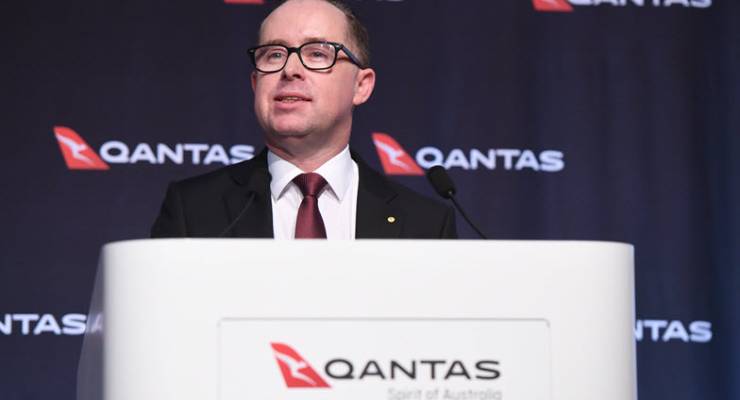
Business can be a Darwinian game and survival instincts are starting to emerge during the COVID-19 crisis.
Take the global ear implant giant Cochlear which was valued by the stock market at $9.7 billion on Monday night when its shares closed at $168.
For a company that floated at $2.90 a share in 1995 and only reported borrowings of $230 million in its latest half-year result, Cochlear is the last ASX50 company you would expect to be desperately raising $930 million of fresh equity in the middle of a crisis.
But that’s precisely what the company did yesterday when it pulled in $880 million from global institutional investors in a placement priced at $140 a share — a 16.7% discount to the previous closing price. An unfairly restricted $50 million Share Purchase Plan offer to its 34,000 retail shareholders will follow next month.
Bizarrely, despite the likes of Qantas, Flight Centre, Reliance Worldwide and Corporate Travel cancelling or delaying paying declared interim dividends, the Cochlear board is soldiering on with paying a $92 million cash dividend next month. Why do that if you suddenly need $880 million?
After that, as the company explained in a 35 slide presentation, dividends are cancelled because Cochlear’s ear implants rely on elective surgery and we don’t know how long the world’s hospital beds are going to be repurposed to fight coronavirus.
So why did the Cochlear board decide to raise so much money so quickly?
Well, there is a global squeeze on equity and it looks like the board, led by conservative ASX chairman Rick Holliday-Smith, took the ultra-cautious view of raising precious equity while they could.
First in, best dressed, where only the strongest will survive.
Whatever happens over the next year, Australia’s most treasured high-value manufacturer is now cashed up and will certainly not be going broke during this crisis. But many other companies — big and small — have already gone bust and will continue to do so.
The game of business is all about incrementally increasing your market share to the point where you eventually dominate your competitors and can maximise profits by exploiting a captive customer base.
When a crisis hits, it’s a great time for the strong to take out the weak. Do not be surprised if Cochlear uses some of the $930 million of fresh equity to take out some of its smaller competitors.
That’s precisely what global biotech company CSL famously did when it bought blood products competitor Aventis Behring in a $1 billion-plus deal in 2003, ending a vicious US price war. CSL is now the world’s dominant blood products company, with a market capitalisation of $129 billion, even after this market meltdown.
Survival of the fittest and the desire to defeat, destroy or buy competitors can explain part of the ruthless campaign that Qantas CEO Alan Joyce has been mounting against any sort of government bailout for Virgin Australia.
Qantas has successfully destroyed or seen off everyone from Ansett to Impulse, Southern Cross and Bryan Grey’s Compass Airlines over the years.
It was happy to see a no-frills Virgin Blue mop up the Ansett carcass, provided it remained a locally-focused budget airline, leaving a cosy business class, domestic monopoly for Qantas.
That was fine until Jetstar’s founding CEO Alan Joyce pipped John Borghetti for the CEO role at Qantas when Geoff Dixon retired in 2008. Borghetti quit Qantas in April 2009 after 36 years with the airline and was then poached to run Virgin Australia.
He embarked on an expensive campaign to muscle up to Qantas as a full-service airline, complete with fancy lounges, business class, a comparable frequent flyer program and a growing international service.
This enraged Qantas, particularly when a group of foreign airlines, including government-owned concerns like Singapore Airlines and Etihad, proposed further bankrolling Virgin Australia through a $350 million pro-rata capital raising in 2013.
Australia can and should support two full-service airlines, but the coronavirus has already sent Virgin Australia broke — given it has gone into the crisis lumbered with a $5.3 billion debt, mainly thanks to Borghetti’s attempt to out-Qantas Qantas.
Whatever happens, federal taxpayers should not pay back the lenders of that $5.3 billion to Virgin Australia. At least, not at anything like 100 cents on the dollar.
The five biggest Virgin Australia shareholders are all foreign airline players which together own 91%. They rank as follows:
- Etihad: 20.94%
- Singapore Airlines: 20.09%
- Chinese conglomerate Nanshan Group: 19.98%
- Chinese tourism conglomerate HNA: 19.82%
- British billionaire Richard Branson: 10.42%.
If these five groups aren’t prepared to keep Virgin Australia going — and takeover rules or FIRB should not prevent any of them from increasing their stake — then it should be put into administration and sold to the highest bidder once the current global shutdown of the airline industry has been lifted.
Just don’t let Qantas interfere with that process as it tries to ensure any future incarnation of Virgin Australia is as weak a competitor as possible.
Qantas will survive — as yesterday’s $1 billion loan secured against seven unencumbered aircraft demonstrated.
Indeed, it’s arguably the strongest privately owned airline in the world at the moment — but it should always have a viable local competitor to keep it honest.








It’s just so reassuring to see capitalism continues to thrive in these challenging times. Bless those CEO’s cotton socks!